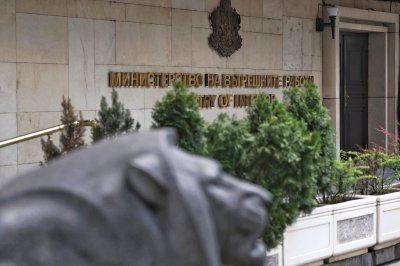The mathematical formula used to calculate the so-called proportional distribution in heating bills does not allow for transparency or accuracy in recording individual consumption. This was confirmed by the Court of Justice of the European Union (CJEU) in a landmark ruling affecting consumers in Bulgaria, reports Lex.bg on October 24.
The decision is binding on all institutions and is expected to lead to the abolition of the formula in its current form and its subsequent revision, the site notes.
In its ruling, the CJEU acknowledged that it is permissible for each resident in a building to pay for the energy delivered through the pipes and installations according to the size of their apartment, provided that “the rules and parameters on which the calculation of the costs charged for the individual consumption of heat energy for apartment heating and for domestic hot water are based ensure transparency and accuracy in recording individual consumption.”
At the same time, the court found that “it appears that the mathematical formula set out in point 6.1.1 of the methodology, on the basis of which the costs of heat energy consumption in apartment-ownership buildings are calculated, does not allow for transparency and accuracy in the recording of individual consumption.”
The legal saga over the proportional distribution formula has been ongoing for years. The Supreme Administrative Court has repeatedly annulled it, declared it invalid, yet in practice the same formula continued to be applied. The most recent amendment, made in May and intended to take effect retroactively from 25 February 2025, was suspended by the SAC pending a ruling on its legality, in order to protect the public interest.
Furthermore, the rules governing the “building installation” have previously undergone scrutiny at the Luxembourg court. In 2019, following appeals from district courts in Sofia and Asenovgrad, the CJEU confirmed that a legal framework is permissible under which apartment owners in a building under apartment ownership, connected to a central heating system, are required to contribute to the costs of heat energy for the common areas and the building installation, even if they did not individually request the heating service and do not use it in their own apartment. It also found that it is permissible for legislation to provide that in apartment-ownership buildings, bills for heating supplied through the building installation are calculated for each apartment owner proportionally to the heated volume of their apartment.
Today, the CJEU reaffirmed the acceptability of the practice whereby energy delivered through the pipes and installations is distributed among all residents according to the size of their apartment.
For the first time, however, the court directly addressed the proportional distribution formula itself. It emphasised that while the Energy Efficiency Directive (Directive 2012/27) does not set specific requirements for such a formula, it does require that the rules for allocating costs ensure transparency and accuracy in recording individual consumption.
To be considered transparent and accurate, such cost accounting must be carried out on an equally transparent and accurate basis, so that the end consumer can, on the one hand, know precisely the amount of costs charged to them, and on the other hand, where necessary, take steps to adjust their personal consumption and thereby comply with the objective of Directive 2012/27 to promote improved energy efficiency,” the court stated.
In conclusion, the ruling notes that “the requirement for transparency and accuracy also applies to the mathematical formula under consideration in the main proceedings, which is used to calculate the specified costs.”











 Чуй новините
Чуй новините Подкаст
Подкаст





















